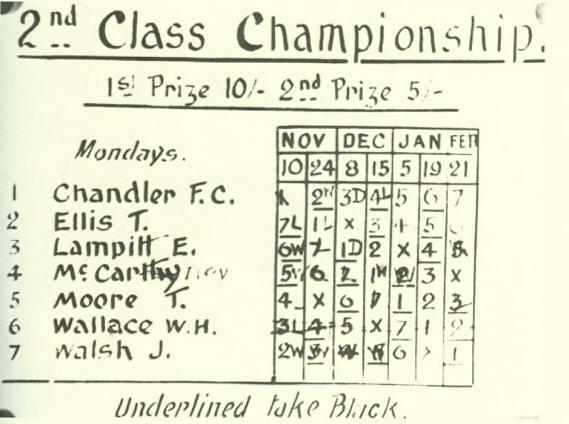Wallace went to 25 Menlove Gardens West and the door was answered by one Katie Mather who informed him that no one by the name of Qualtrough lived there. He then speaks to PC James Sargent who was on duty at the junction of Green Lane and Allerton Road and the relevant conversation is recounted in the book which I have on the subject by Ronald Bartle as follows at page 29:
Sargent:He said do you know, or can you tell me, of Menlove Gardens East? I said there is no Menlove Gardens East, there is a Menlove Gardens North, South and West. He said I have been to Menlove Gardens West number twenty five. The person I am looking for does not live there, and the numbers are all EVEN (my emphasis) and I suggested to him that he should try 25 Menlove Avenue.
A quick postcode search indicates that today there are no odd numbers on Menlove Gardens North or South and so I assume there were none in 1931.
Wallace's next calls in his quest were to the post office whence he was directed to a newsagents at 130 Allerton Road, obviously neither establishment was able to assist in finding 25 Menlove Gardens East.
It is not clear (from what I have read) whether an inquiry was made at 25 Menlove Avenue which was only a few yards from the junction with of Menlove Avenue with Menlove Gardens West. But in Wallace's favour if a mistake had been made in taking down the address phoned through by Qualtrough then such mistake would be as likely to relate to the numbering of the house as to the name of the road on which it stood. In which case the sensible thing to do would be to see if there were a record of a Qualtrough living in the area, which is what Wallace seems to have done.
Sargent:He said do you know, or can you tell me, of Menlove Gardens East? I said there is no Menlove Gardens East, there is a Menlove Gardens North, South and West. He said I have been to Menlove Gardens West number twenty five. The person I am looking for does not live there, and the numbers are all EVEN (my emphasis) and I suggested to him that he should try 25 Menlove Avenue.
A quick postcode search indicates that today there are no odd numbers on Menlove Gardens North or South and so I assume there were none in 1931.
Wallace's next calls in his quest were to the post office whence he was directed to a newsagents at 130 Allerton Road, obviously neither establishment was able to assist in finding 25 Menlove Gardens East.
It is not clear (from what I have read) whether an inquiry was made at 25 Menlove Avenue which was only a few yards from the junction with of Menlove Avenue with Menlove Gardens West. But in Wallace's favour if a mistake had been made in taking down the address phoned through by Qualtrough then such mistake would be as likely to relate to the numbering of the house as to the name of the road on which it stood. In which case the sensible thing to do would be to see if there were a record of a Qualtrough living in the area, which is what Wallace seems to have done.

 F
F
Comment